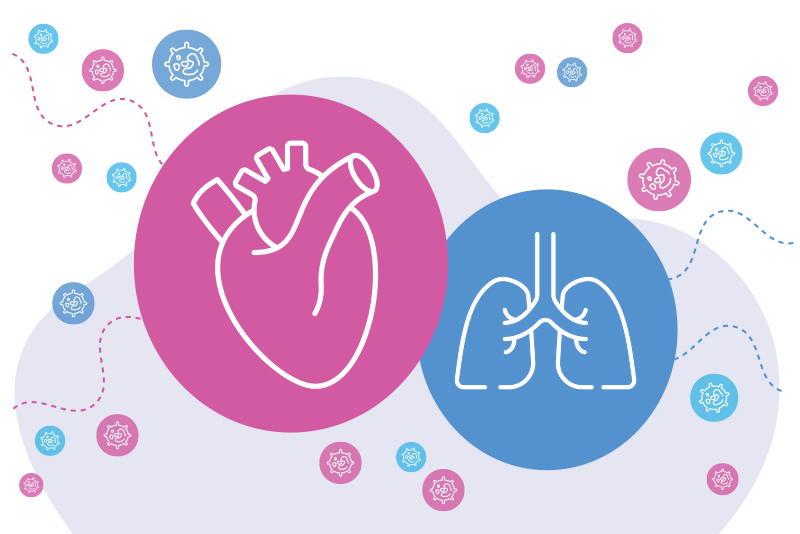A clinical trial aims to reduce complications in life-saving lung and heart treatment

Extracorporeal membrane oxygenation (ECMO) can be lifesaving for critically ill children with severe lung and heart failure who are not responsive to conventional treatments. This approach takes over the work of those vital organs, enabling patients to rest and recover. It transfers blood from the body into a pump-and-oxygenator machine, where blood is oxygenated and carbon dioxide removed. The oxygen-rich blood that is eventually returned to a patient’s circulation supplies oxygen to tissues for metabolic functions.
While there are clinically effective uses for ECMO, “A drawback is that during ECMO, patients — especially children — are exposed to a lot of blood transfusions,” says Ravi Thiagarajan, MD, MPH, chief of Cardiovascular Critical Care in Boston Children’s Benderson Family Heart Center. “That can decrease the chance of survival.”
Much about ECMO’s aftereffects is unknown
Children supported by ECMO often require red blood cell (RBC) transfusions to maintain hemoglobin levels for oxygen delivery to tissues (DO2). However, the hemoglobin level at which optimal DO2 occurs is unknown. According to Thiagarajan, recent observational studies have shown an association between a large volume of RBC transfusions during ECMO and poor survival rates.
For some time, Thiagarajan and his colleagues have wanted to learn if there are ways to effectively use ECMO to support children with failing heart and lungs, but at the same time, safely restrict blood transfusion. A big hurdle stood in their way: The number of ECMO patients at Boston Children’s each year isn’t large enough for a randomized clinical trial that can conclusively answer this question.
They finally cleared that obstacle. Next year, Boston Children’s and 17 other medical centers will embark on a government-funded study to see if restricting RBC transfusions in critically ill young patients who are receiving ECMO treatment can reduce the chance of complications.
“The multicenter design for this randomized trial, through the formation of a research network of ECMO sites, will provide the necessary volume of ECMO patients to answer the scientific questions that our group has posed,” says Lynn Sleeper, ScD, scientific director of the Benderson Family Heart Center Clinical Research Program, who led the grant application and will direct the Data & Statistical Coordinating Center for the trial. Dr. Thiagarajan will lead the Clinical Coordinating Center.
The trial aims to enroll 228 patients and will follow their health status for one year.
Considering a less-intensive form of treatment
Known as the Trial of Indication-based Transfusion of Red Blood Cells in ECMO (TITRE) — the study’s target population is children younger than 6 years old who are about to receive ECMO support. The trial will randomly assign each patient into one of two groups.
With one group, clinicians will restrict RBC transfusions, based on a combination of clinical factors that can indicate if such treatment is necessary. The other group of ECMO patients will receive transfusions based on a hemoglobin or hematocrit threshold. The researchers will then study the two groups to test their hypothesis that an indication-based RBC transfusion protocol will lead to less organ dysfunction and better neurodevelopmental outcomes than a threshold-based protocol.
Having the chance to study the neurodevelopmental outcomes of patients in both study groups will be a particularly invaluable opportunity to learn more about the longer-term effects of transfusions during ECMO, Thiagarajan says. Even if children on ECMO survive, there aren’t much data on their quality of life.
The grant is an exciting development, he adds, for clinicians who recognize the importance of ECMO and will continue to recommend it— but also want to find equally effective and safer ways to treat children who need support for failing heart and lungs. “We want to answer some really important questions for our field.”
Also leading the study from Boston Children’s are Jane Newburger, MD, MPH, associate cardiologist-in-chief of the Department of Cardiology; Daniel Kelly, MD, an intensivist in the Division of Medical Critical Care; and Peta Alexander, MBBS, Medical Director of Cardiac ECMO.
Learn more about the services and programs of the Department of Cardiology.
Related Posts :
-

From ECMO to star athlete: Kobe’s story
Kobe Perry is fast. This year, the 12-year-old from New Hampshire placed #2 in the United States in the indoor 60-meter ...
-

From ICU patient to nursing student: Atiana’s heart journey
Atiana Lancaster was 13 and playing the last few games of lacrosse season in 2015 when she started having unusual — and worrying — ...
-

Making it through the fight: Scarlett's CDH journey
Like her name suggests, Scarlett Virginia Moulton “has a lot of fire,” says her mother, Olivia. “She always has a ...
-

From Cape Verde for coordinated CDH care
Most parents have never heard of congenital diaphragmatic hernia (CDH), a rare and potentially life-threatening condition in which a baby ...





